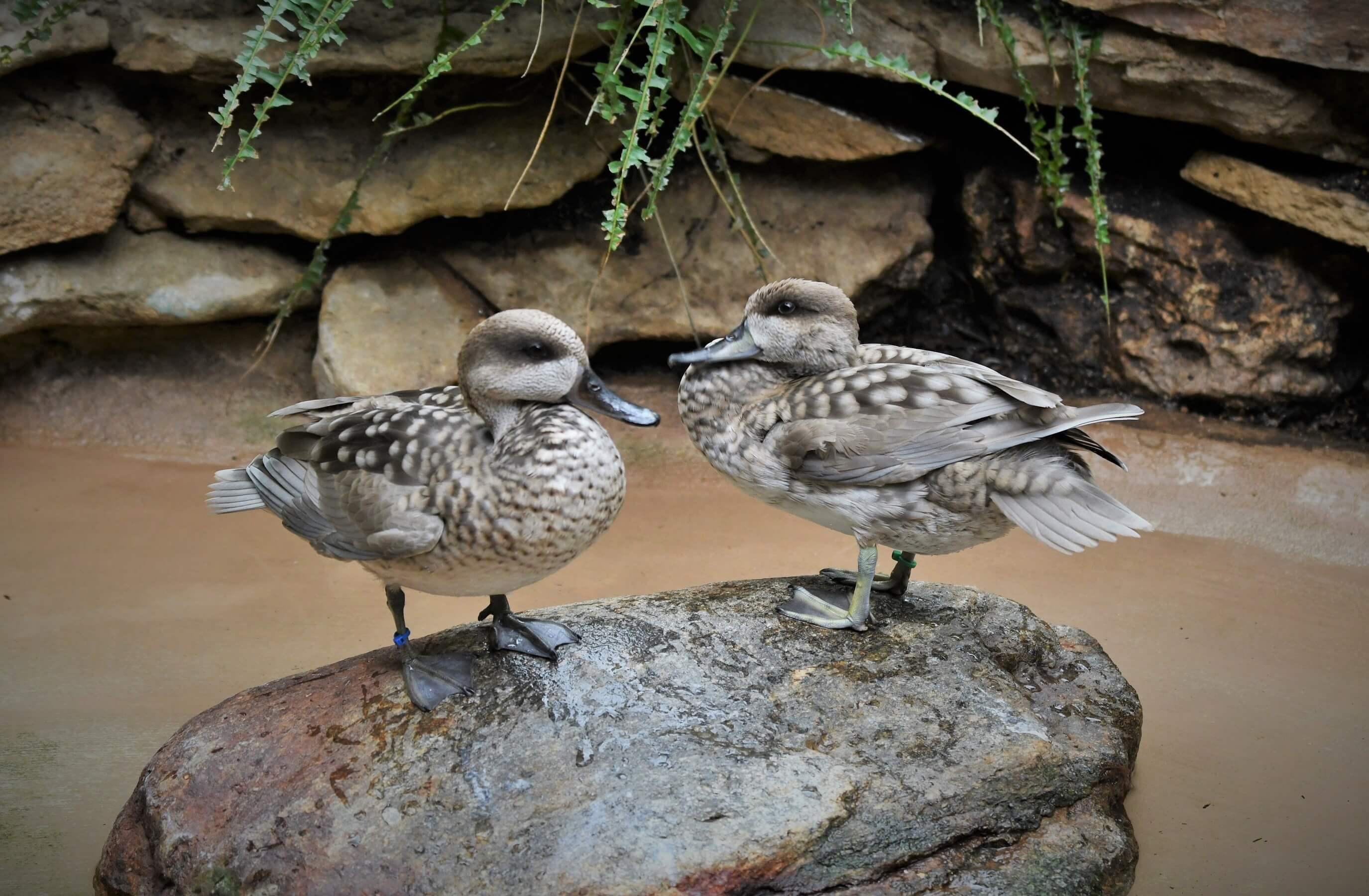
Marbled Teal
Marmaronetta angustirostris
Did you know?
- Marbled teals are a part of the Anatidae family, which they share with geese, swans, and other ducks.
- They are named for the spots, or "marbles," of light and dark feathers.
- They live in many areas around the world, including Africa and Southern Asia.
- They have unusually long necks and wings.
- A female will lay four to twelve eggs in one clutch.
Young and Family
Marbled teals pair up during the breeding season in winter. The male will leave the female once she begins incubating the eggs, and incubation takes about 25 days. The nesting site is often on the ground, within vegetation, near a water source, like a lake.
Adaptations
Marbled teals generally live in flocks except for breeding season, finding safety in numbers. They dabble in water and use their beaks to sift through gulps for food, which includes fish and some vegetation.
Threat Level
- Unknown
- Common
- Near Threatened
- Threatened
- Endangered
- Critically Endangered
- Extinct in the Wild
Threatened
Marbled teals have a high risk of endangerment in the wild.
Range
Mediterranean, Western Asia, and Africa
Habitat
Freshwater wetlands and ponds
we care about marbled teals
The Saint Louis Zoo supports marbled teals at the Bird House at the Zoo. Learn more about how we are helping wildlife around the world.
Find this animal in Historic Hill

SAINT LOUIS ZOO ZONE
Historic Hill
Historic Hill is a lovely stroll through one of the oldest parts of the Saint Louis Zoo. From the 1904 World’s Fair Flight Cage to the Spanish architectural flavor of the 1920s in the Bird House, Primate House and Herpetarium to the finishing touches of our thoroughly modern exhibits, this area of the Zoo has a unique ambiance and a nostalgic history that make it a great destination.

